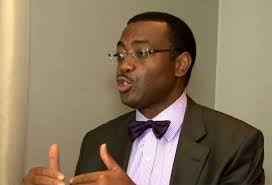The President of the African Development Bank (AfDB), Dr. Akinwumi Adesina has said that the future of food in the world depends on what Africa does with agriculture, particularly through investment support to farmers in the continent.
Adesina made this declaration when he addressed a crowd of global agriculture experts at the Food and Agricultrual Organisation (FAO) headquarters in Rome, pointing out that with the abundant agricultural and other endowments in the African continent what Africa needs is not aid but disciplined investments to achieve this goal.
A news report sourced from African Press Organisation (Group) the AfDB President as saying that the time has come to view investment and development opportunities in Africa through a totally different lens.
Noting that with over 800 million people worldwide suffering from hunger and more than two billion affected by malnutrition, the 2017 World Food Prize Laureate, said that food insecurity remained a real threat to global development.
Adesina, who is making a global pitch for renewed visionary leadership and strategic alliances, stressed that ‘the future of food in the world will depend on what Africa does with Agriculture.’
Already, the AfDB envisions a food secure continent which uses advanced technologies, creatively adapts to climate change, and develops a whole new generation of what he describes as ‘agripreneurs’ – empowered youth and women who he expects to take agriculture to the next level.
Faced with the threat of the projection that by 2050, an additional 38 million African will be hungry, indicating a paradox of lack in the midst of plenty, Adesina has taken the message of food security as a policy imperative to numerous government, private sector, and multilateral leaders during his recent European and Asian trips.
The banker and 2017 World Food Prize Laureate will be the first to admit that he considers himself the ‘evangelist-in-chief’ for a food secure Africa.
Quite ironically, despite her huge potential in agriculture, Africa continues to import what it should be producing, spending $35 billion on food imports each year, a figure that is expected to rise to $110 billion in 2025 if present trends continue.
It would be recalled that Adesina joined Rockefeller Foundation President Raj Shah, Unilever CEO Paul Polman, and 2018 World Food Prize nominees Lawrence Haddad and David Navarro, among other prominent global academic, development, and agriculture experts at Wageningen University and Research, in the Netherlands, to make the case for urgent collective action by State and non-State players to accelerate Africa’s agricultural growth and transformation.
With Africa just receiving only two percent of the $100 billion annual revenues from chocolates globally, the AfDB President Adesina told his audience that ‘adding value to what nations produce, is the secret to their wealth. Producing chocolate instead of simply exporting cocoa beans does not require rocket science.’
To expand opportunities for youth, women, and private sector players, Adesina is on a global mission to promote and seek support for the bank’s Affirmative Finance for Women in Africa (AFAWA) program which aims to mobilize $3 billion to support women entrepreneurs who historically lack access to finance, land, and land titles; a $300 million ENABLE Youth program to develop the next generation of agribusiness and commercial farmers for Africa; and a new global investment marketplace, the African Investment Forum, which will be held in Johannesburg November 7-9.
In separate meetings with Sigrid A.M. Kaag, Minister for Foreign Trade and Development Cooperation, in the Hague; Peter van Mierlo, CEO of the Dutch Entrepreneurial Development Bank (FMO), key private sector players, and members of the Dutch Foreign Affairs Advisory Council, Adesina said Africa and its partners must seize unprecedented opportunities for innovative partnerships and increased development impact.
Mierlo believes, “a huge benefit for Africa is that it can skip development cycles that often almost all developed countries had to go through, by deploying new technologies such as artificial intelligence and robotics in agriculture”.
In a continent where more than 640 million are without electricity, Adesina says the private sector is key to Africa’s development in Africa’s energy and agriculture sectors.
“If Africa is going to turn the tide of irregular migration, this is critical. There are three ways in which we can collaborate: either through the NEPAD Infrastructure Project Preparation Facility, Africa 50 – a private equity institution which has raised more than US$ 850 million from 22 countries, and the new Africa Investment Forum.”
Adesina, recognizes that the lack of electricity is Africa’s biggest development impediment. The Bank’s new and ambitious Desert-to-Power initiative which aims to generate 10,000MW of power across Africa’s Sahel region will be critical to reducing migration and climate change impacts. We will do this through a blended finance mechanism with guarantees”, Mr. Adesina said.






